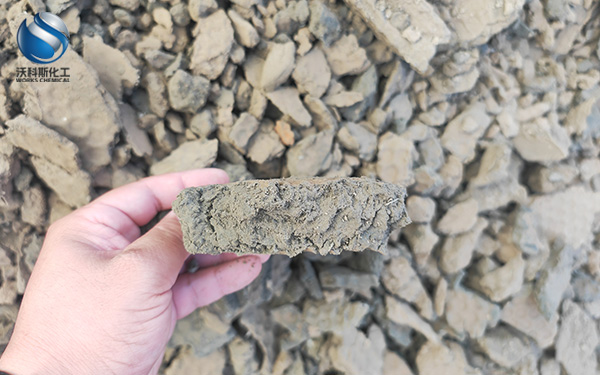
In the process of sludge treatment, the choice of conditioner is very important. This article introduces five categories of sludge conditioners, including inorganic conditioners, organic conditioners, combination conditioners, biological conditioners, and self-made conditioners. Understanding the characteristics and application scope of various sludge conditioners will help achieve more efficient and environmentally friendly sludge treatment.

Weifang Works Chemical Co., Ltd - manufacturer of sludge conditioner and sludge dewatering synergist
1. Inorganic conditioner
Inorganic conditioner is the most commonly used sludge conditioner, mainly including lime, aluminum hydroxide, iron hydroxide, etc. Inorganic conditioners improve the dewatering performance of sludge by neutralizing organic acids in the sludge and adjusting the pH value of the sludge. The advantages of inorganic conditioners are low cost and good dehydration effect. However, a large amount of addition may lead to an increase in the amount of treated sludge.
2. Organic conditioner
Organic conditioners mainly include cationic polyacrylamide (CPAM), anionic polyacrylamide (APAM), etc. Organic conditioners improve the dewatering performance of sludge by adsorbing and neutralizing organic substances in the sludge. Compared with inorganic conditioners, organic conditioners have a smaller amount of addition and significantly improve the sludge dewatering effect. But the cost is relatively high.
3. Compound conditioner
Composite conditioners are the combination of inorganic and organic conditioners to leverage their respective advantages. The combination of conditioners can not only reduce the cost of sludge treatment, but also improve the dewatering effect of sludge. Common combination conditioners include lime polyacrylamide, aluminum hydroxide polyacrylamide, etc.
4. Biological conditioner
Biological conditioner is a relatively new type of sludge conditioner, which mainly utilizes microorganisms to decompose organic substances in sludge, thereby improving the dewatering performance of sludge. Biological conditioners can not only reduce the moisture content of sludge, but also improve its stability and reduce the risk of secondary pollution.
5. Self made conditioner
Some companies may choose homemade conditioners based on their own needs. This type of conditioner usually adjusts and combines existing conditioners appropriately to meet the needs of specific sludge treatment scenarios. The advantage of self-made conditioners is that they can be optimized according to actual situations to achieve better sludge dewatering effects. However, it should be noted that the development and application of self-made conditioners require certain technical support and experience accumulation.
Summary:
The selection of sludge conditioners is related to the effectiveness and cost of sludge treatment, therefore it is necessary to comprehensively consider the properties, treatment objectives, and economic conditions of the sludge. This article introduces five categories of sludge conditioners, each with its advantages and disadvantages. Understanding the characteristics and applicability of these conditioners can help to select suitable conditioners and achieve efficient and environmentally friendly sludge treatment.